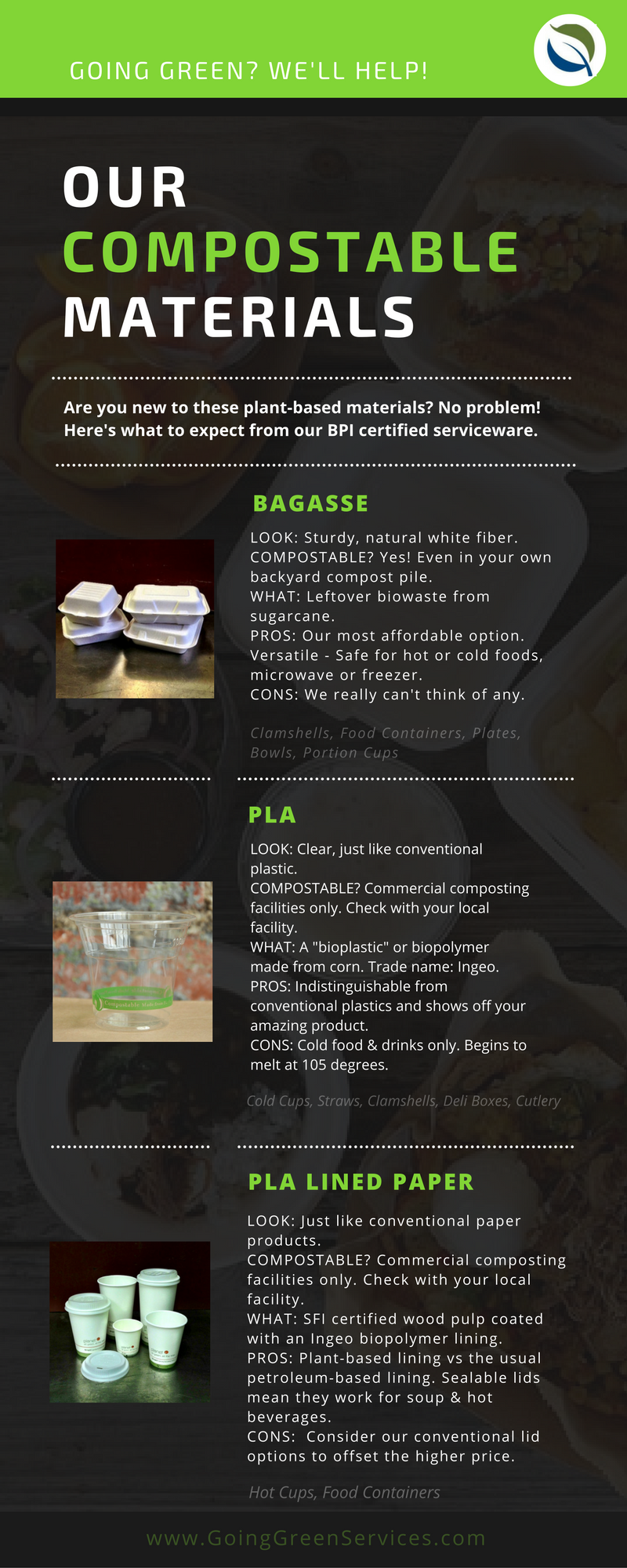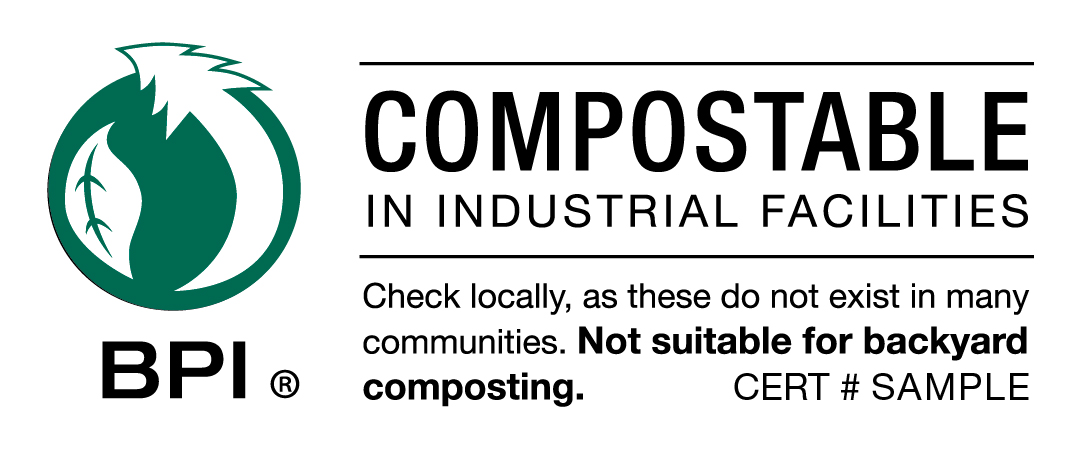Compostables
what does composting mean for your food service business?

What does compostable mean?
Composting is a biological process - helped along by humans - in which anything derived from natural materials biodegrades or is broken down by microorganisms to create finished compost that can be added to the soil as beneficial organic matter.
Composting completes a natural cycle in which renewable materials (i.e. plants) are turned into a resource (finished compost) that can be returned to the soil to create more renewable materials. Plastics or any petroleum based products are not biodegrable and cannot be recycled in this way.
Certified Compostable (“BPI certifed”) products are tested by the not for profit Biodegradable Products Institute. These products will compost completely in a commercial facility, but not in your backyard compost pile. They are certfied to meet ASTM D6400 or D6868 testing standards. This means that they will fully and safely biodegrade, leaving behind “no persistent synthetic residues,” break down into small enough particle size in the appropriate amount of time, and will contribute to a finished product that is valuable to plants.
This certification step is important because it is regulated and verifiable, unlike many “greenwashing” attempts where companies appeal to consumers with environmental claims that cannot be backed up. Not all biobased or biodegradable materials are necessarily compostable, so make sure you look for that certified compostable logo. with environmental claims that cannot be backed up. Not all biobased or biodegradable materials are necessarily compostable, so make sure you look for that certified compostable logo.
What's so important about compostable?
Because only renewable resources are used to make compostable products, they are planet-friendly from the outset. When they are composted, waste is diverted that would otherwise be landfilled. Instead, valuable nutrient resources can be returned to the soil after the composting process. What was a waste product is turned into an asset. This is how nature does things - there is no “waste” in a forest - every element is recycled to further support the ecosystem.
It’s true, many communities don’t have a commercial composting facility - yet! - so often compostables do go the landfill. Even if compostable serviceware is not composted, it is still a better option. In a landfill, compostable products may safely biodegrade (depending on how the facility is managed). Even if they don't biodegrade, you know that they had a greener footprint at their manufacture and that they are healthier for us to use. But commercial composting makes economic sense and it is in our near future. You can help create the market for it now by choosing certified compostables!
Compostable serviceware is also required by events and festivals with Zero Waste goals. Zero Waste is a philosophy where systems are designed after nature, so that all our “waste” becomes a material for some other use and nothing is sent to a landfill or incinerator. As the Zero Waste movement spreads, demand for compostable products will grow. Our favorite local example is the Nelsonville Music Festival, which works with the Rural Action Zero Waste Program to divert festival waste from the landfill - with a 96.4% diversion rate in 2014!
So how do I compost?
Some items can be composted in your backyard compost bin. Read Composting 101 for a few of our tips on composting at home. For more details check out these resources from gardening authorities Mother Earth News and Rodale.
Bagasse can be composted at home, in small quantities and if
you take the right measures. On a commercial scale, bagasse is a great
source of “carbons” or “browns” to balance food scraps, which are high
in nitrogen.
However, many of the products we sell require further processing by a commercial composting facility to properly biodegrade. This includes all of our PLA products and our paper food containers. These facilities have equipment such as shredders, pulpers and windrow turners to make sure everything is broken down in a timely manner.
If you are in Ohio, you can search for a certified commercial composting facility on the Ohio EPA website. View a quick map of facilities here. But do your homework - some of these facilities may not be open to the public and may accept only certain kinds of items. For all of U.S.A. and Canada, check out the BioCycle website. You can also inquire with your local solid waste authority or district. If there are not facilities in your area, your local officials should know that there is demand! Click here for a list of Ohio's Solid Waste Management Districts or here for a map. See our Resources page for local food waste haulers.
|



